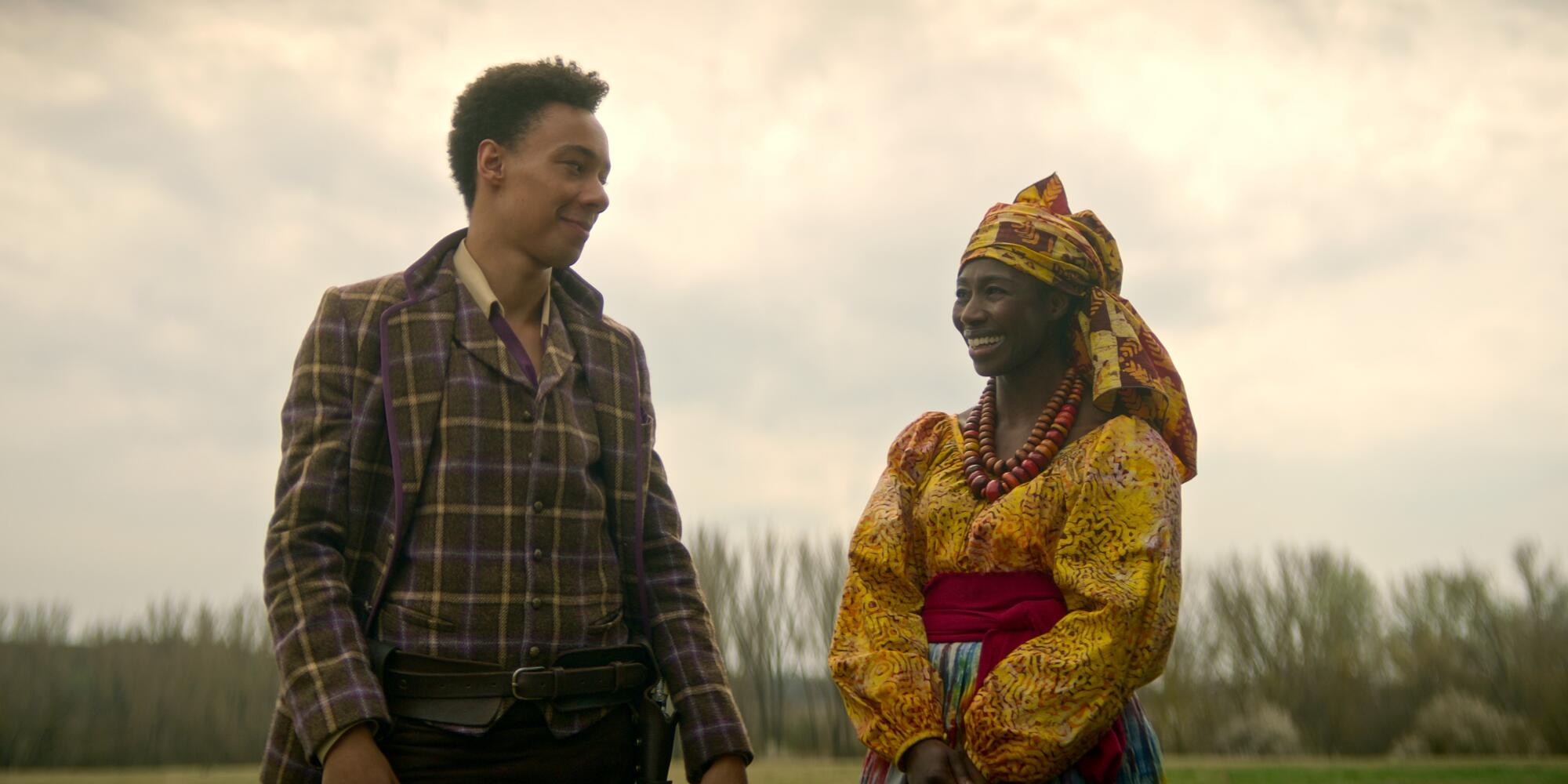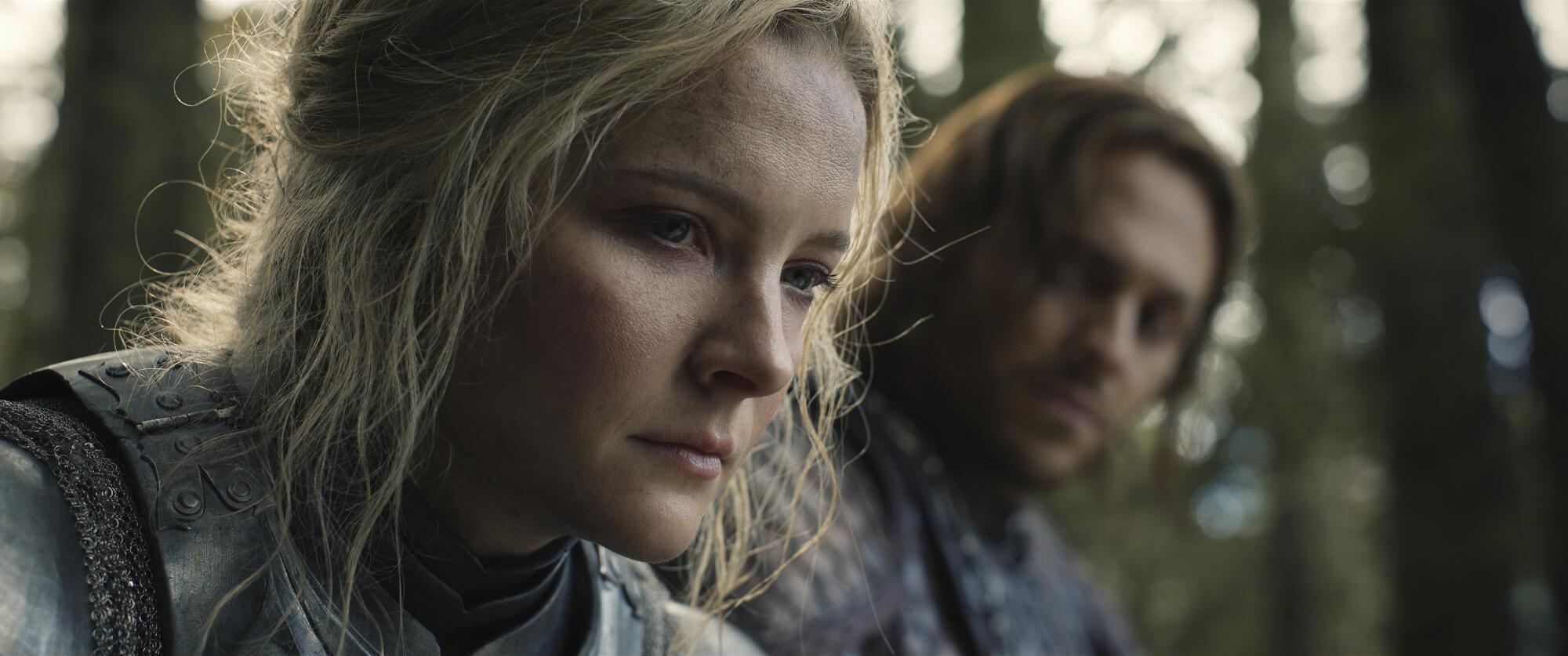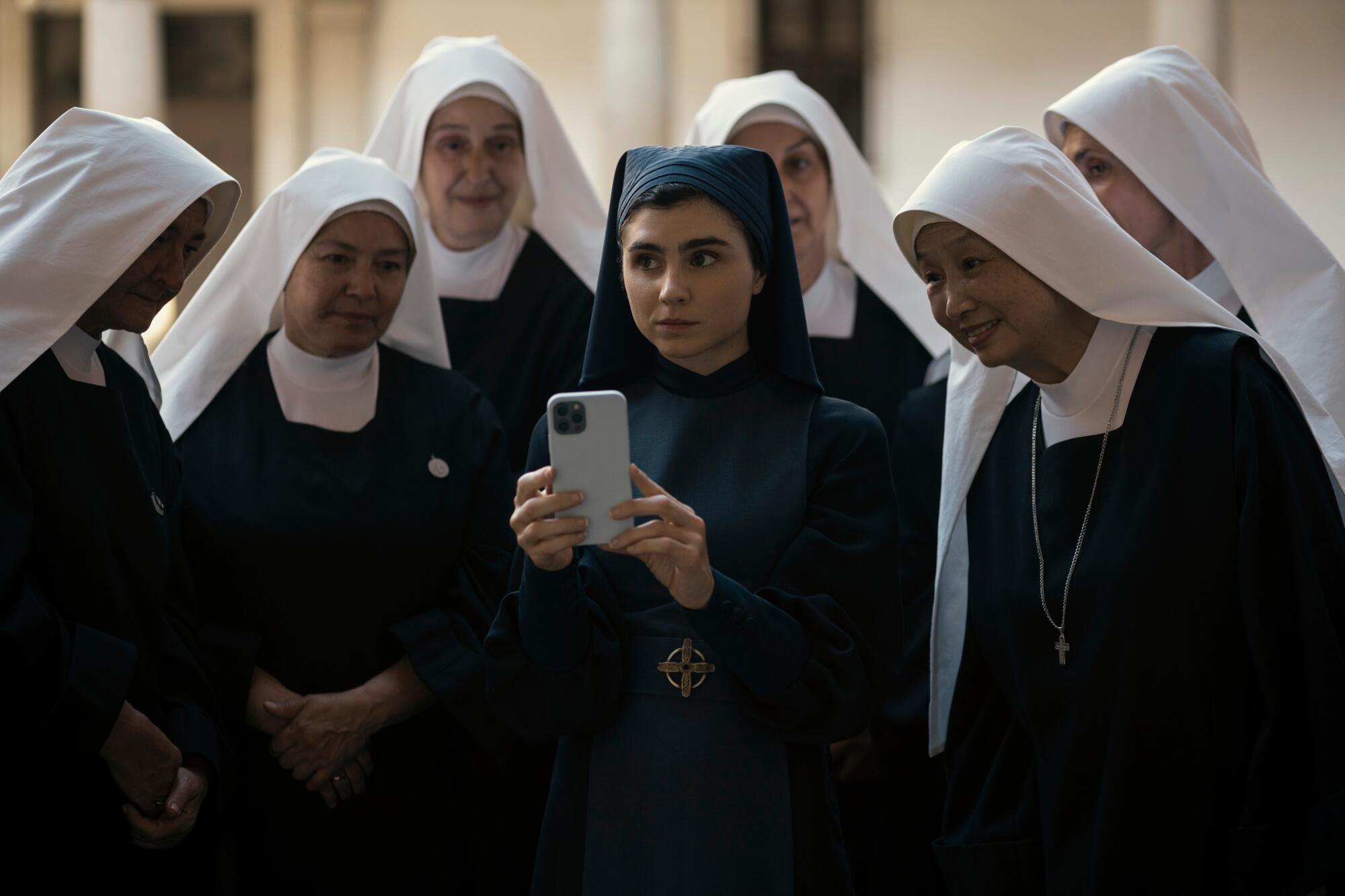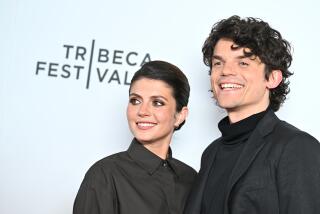
Nikki Rodriguez wants Netflix to renew its fantasy series “Shadow and Bone” — so much so that she has watched its second season 15 times.
She’s promoted fan videos on social media to court new viewers for the show. The New York resident also created a Change.org petition that has about 1,800 signatures.
“It’s unfortunate they are making the fans wait so long,” said 47-year-old Rodriguez, who’s been in limbo since the latest episodes debuted in March. “We’re really rallying to get the show renewed.”
Over the years, fans have taken drastic measures to keep their favorite programs from getting canceled. A plane last year flew over a Netflix office with a banner reading “Save Legends of Tomorrow,” in an attempt to salvage the DC superhero show after the CW network canceled it. One fan went on a hunger strike to rescue Netflix’s science fiction series “The OA.”
The complete guide to home viewing
Get Screen Gab for everything about the TV shows and streaming movies everyone’s talking about.
You may occasionally receive promotional content from the Los Angeles Times.
Both efforts failed.
Figuring out what metrics make a streaming show successful can bewilder fans.
Is it the number of hours people spent watching the show? Or how many viewers finished the season? Does social media buzz count?
It’s something that many Hollywood writers also want to know as they continue to strike in pursuit of a better deal with the studios. The problem is, unless the show is popular, that data is mostly hidden from the public, making it difficult to calculate the market value of a show or movie.

While measurement firm Nielsen calculates viewing time for streaming shows and movies, it only releases data for the top 10 titles for any given week in each category. Netflix posts its own rankings online detailing how many hours each show was watched — but only for its most popular titles.
“There’s this black box, which is the data that the streamers control that they are not sharing with ... valued artists and valued suppliers because it is so peculiar the way they measure success,” said Tom Nunan, a former studio and network executive.

Traditional broadcast and cable networks determine whether a show is a hit based on Nielsen ratings, which reveal the average number of households tuning in, the show’s share of TV viewing during its time slot and audience demographics. A show’s success often is judged within days of its debut.
With streaming, it’s different, and varies from company to company. Some streamers, like Netflix, observe how well a show does during its first 28 days of existence. Others consider longer periods of time — 75 and 80 days, in some cases, for programs that release one episode a week, rather than whole seasons all at once.
Amid a writers’ strike largely about the power of platforms, we take a snapshot of the streaming pecking order, from Netflix to (formerly HBO) Max.
Netflix says it offers viewing metrics to showrunners, more than what is publicly available, but declined to go into specifics. Amazon said it provides insight into performance for showrunners but declined to elaborate. Hulu and Warner Bros. Discovery declined to comment on how they view metrics.
Streamers use a variety of metrics, including how many hours people watched a given show and what percentage of the series viewers completed. Executives also factor in production and marketing costs.
A key variable is how many subscribers a show brings in. Streaming services need to have enough compelling content to attract a broad audience and keep consumers spending more time on their apps, instead of rival entertainment destinations like TikTok and Fortnite.

Streamers are facing increased scrutiny in terms of whether they’re getting a return on their content investment. Wall Street has increased pressure on streaming services to boost profits, after years of focusing mostly on subscriber growth.
“People are asking the tough questions, and with asking tough questions, you have to be more rigorous, more analytical,” said Alejandro Rojas, vice president of applied analytics at research firm Parrot Analytics.
At Amazon, key metrics include watch time and whether a show attracts new members to Prime, which gives perks like music streaming, access to original shows and free shipping.
A decade after Netflix disrupted the industry with ‘House of Cards,’ Peak TV is in retreat, and in its place is a new era of discontent.
Amazon, like most streamers, discloses viewership stats selectively.
Last year, Amazon Studios launched its most expensive TV show yet, “The Lord of the Rings: The Rings of Power,” spending more than $700 million, including the TV rights, for the first season, according to people familiar with the budget. The show broke viewership records on its first day, with more than 25 million people tuning in. More than 65% of the audience for “The Rings of Power” was outside the U.S., Amazon said.
Earlier this year, Amazon launched the spy thriller series “Citadel,” starring Richard Madden and Priyanka Chopra Jonas, which the tech giant says is its third-most-watched new original series worldwide.
Anonymous industry blog the Entertainment Strategy Guy refers to such comparative measurements as “datecdotes” because they lack specific numbers. During its first three weeks of release, “Citadel” did not crack the top 10 for Nielsen streaming ratings, which measures U.S. viewing on TV sets.

The show, which some estimated cost $250 million to make, drew new Prime members internationally, including in countries like India, South Africa and New Zealand. Amazon did not give specific numbers.
“When you’re looking at how many people are signing up for the service, in country after country outside of the U.S., it’s huge,” said Vernon Sanders, head of television at Amazon and MGM Studios. “On some of our global tentpoles, our audience outside the U.S. is a multiple of what it is inside the U.S.”
Elements other than audience data and financial considerations can influence programming decisions. Those may include the desire to maintain relationships with top-tier creators, as well as the allure of winning prestigious awards.

The benefits of social media buzz are fuzzy to interpret. While tweets and TikToks can help drum up attention for streaming shows, they don’t always translate into more viewers.
For example, passionate fans tweeted enthusiastically about Netflix’s “Warrior Nun.” There were more tweets about the series made by a smaller group of fans than some of Netflix’s more popular shows. But that did not drive enough viewership for the series to continue, according to a person familiar with the show’s production who was not authorized to comment.
More than half of Netflix’s U.S. English-language scripted shows get renewed annually, the company said. The opaque reasons some survive and others don’t can spark controversy online.
Since the ESPN/Netflix co-production became a cultural phenomenon, the flood of sports docs has intensified — making it ever harder to break through.
Fans protested when the vampire series “First Kill” was canceled while coming-of-age love story “Heartstopper” was renewed. However, “First Kill” had a much lower completion rate and was significantly more expensive to make than “Heartstopper,” the knowledgeable person said.
So what does this mean for a potential “Shadow and Bone” Season 3?
First, look to the past. “Shadow and Bone” Season 2 landed on Netflix’s top 10 TV chart for English-language series for five weeks, based on hours watched globally. It also placed in the top 10 by watch time in 86 countries, including the U.S.
While getting on Netflix’s weekly top 10 list is an achievement, it doesn’t guarantee anything.

What separates the renewed from the canceled is often the length of time a show spends on the top 10 list and its international reach, Netflix said.
“One of the hardest parts of this job is deciding when it’s time to cancel a show,” said Peter Friedlander, Netflix’s vice president of scripted series for the U.S. and Canada. “Every show is a result of years of hard work of people in front of and behind the camera, so these aren’t decisions we take lightly.”
Friedlander added: “I know what it feels like to connect to characters and a story and then be disappointed when it’s not renewed. We make these decisions the same way they’ve been made for decades — is there a large enough audience for this show relative to the cost, and most importantly, what is the creative direction and vision.”
Die-hard “Shadow and Bone” fans are eager to boost the show’s stats and have engaged in creative gambits to improve its chances.
For brands like Tplus and Vix, reimagining one of Spanish-language TV’s most venerable formats is just one path to finding a younger, larger audience.
Some fans encouraged people to replay the second season muted in the background to rack up more viewing hours for the show, according to Rolling Stone. But two former Netflix employees who spoke to The Times doubted this tactic would work.
Netflix has roughly 233 million subscribers globally. It would be more effective for “Shadow and Bone” superfans to recruit new viewers rather than watching Season 2 repeatedly from the same account, the ex-employees said.
“You can’t game the system,” one of the former staffers said.
Netflix said it hasn’t made a decision on “Shadow and Bone” Season 3 yet. As with many shows across the entertainment industry, programming conversations are on hold due to the writers’ strike, a company spokesperson said.
Times staff writer Meg James contributed to this report.
More to Read
The biggest entertainment stories
Get our big stories about Hollywood, film, television, music, arts, culture and more right in your inbox as soon as they publish.
You may occasionally receive promotional content from the Los Angeles Times.
















